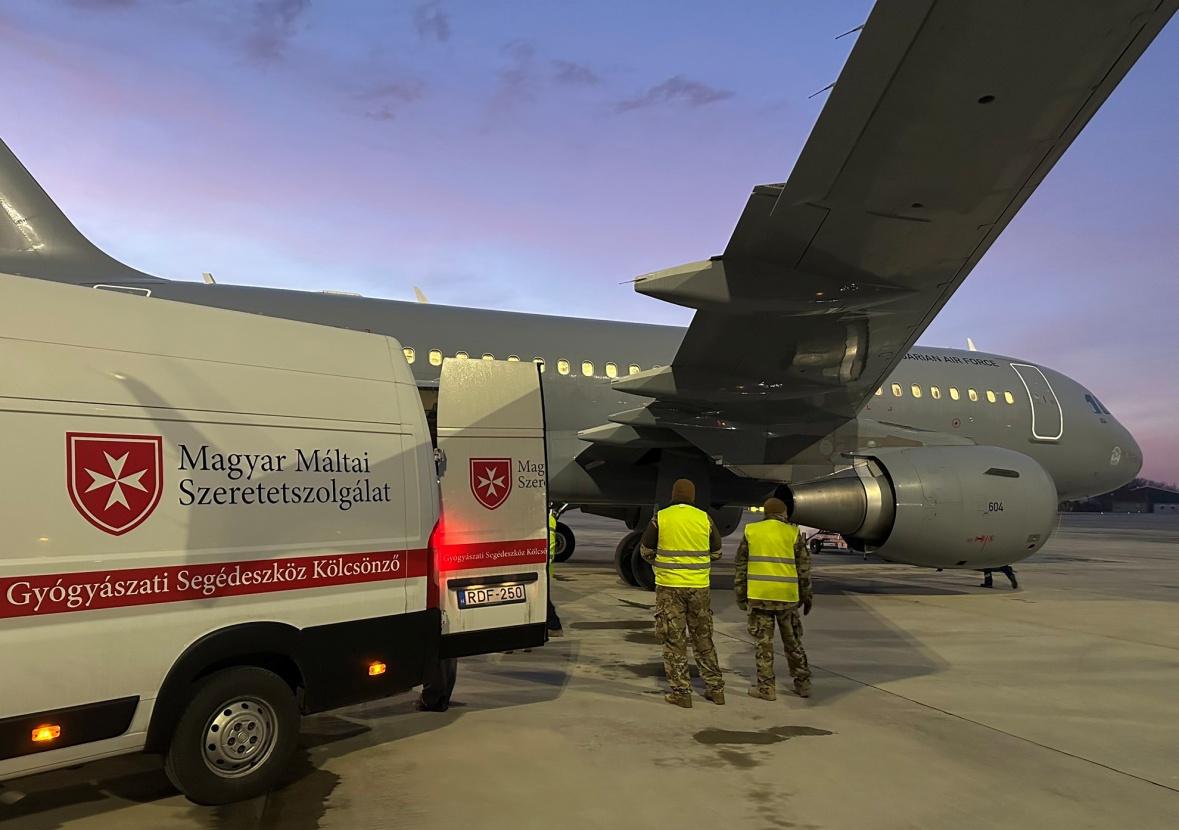
Christians in Syria are destitute, some of their priests and monks are starving.Continue reading
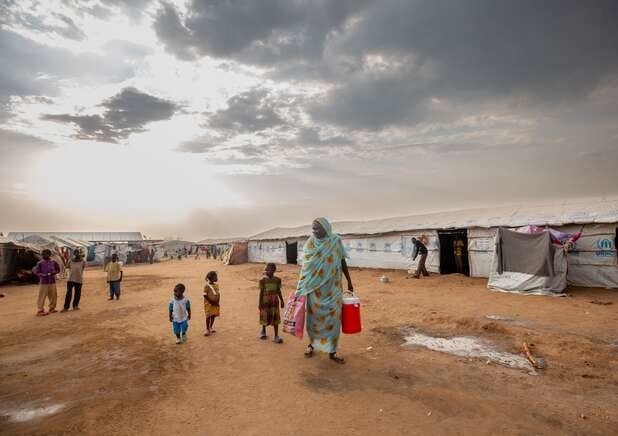
While in our last discussion with the Director of International Relations at the Hungarian Charity Service of the Order of Malta, Daniel Solymári, we focused on aid for persecuted Christians, here we asked him about their charity work in Africa. Is Africa still a bottomless pit when it comes to foreign aid? Should not these precious resources be better spent at home, in Hungary, where there are plenty of vulnerable people in need of help? His honest answers may surprise many.
During our last meeting we spoke about your work with persecuted Christians in the Middle East. This time I would like to focus on your work in Africa, where you have running programs in Tanzania, Kenya and Uganda. Am I right in saying that you have sent aid to some other countries as well in recent months?
The three countries above are our strategic target-countries, but other destinations are occasionally approached. In South Sudan, for instance, where we participated in a child soldier demobilization program in 2013. Then there was also Senegal, where we set up a hospital at the initiative of our late leader, Father Imre Kozma. We are also present in Congo, Rwanda, Ethiopia and other countries. But the strategic target countries are really the three East African ones.
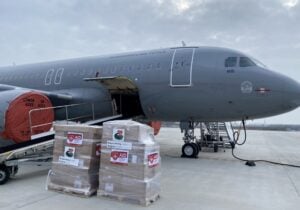
Photo: Hungarian Charity Service of the Order of Malta
Just as in the Middle-East, in Africa you partner with Christian institutions as your mediators, or as your local advisors for distributing aid. Is this fact a remnant of historical ties, or is there a current active fellowship of faith and values that naturally creates this cooperation?
For us, as a Catholic Christian institution, working with other Christian bodies or individuals comes as a natural bond. One always chooses an ally or partner from one’s family first. These are primarily the historic Catholic Churches, and through them we then enlarge the circle. But in this respect, the work of the Hungarian Charity Service of the Order of Malta cannot be exclusive: it cannot be a matter of limiting help to Christian beneficiaries only. The circle of those we help is therefore open to other religious groups. Their common ground is their need for help. When we develop a school or a hospital, the beneficiaries of these are from a variety of backgrounds.
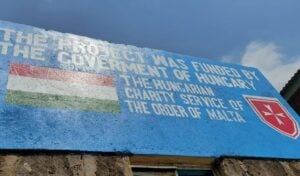
Photo: Hungarian Charity Service of the Order of Malta
Many people say that, as far as aid is concerned, Africa is a bottomless pit, there is no amount of aid that cannot be absorbed there. Methodologically, how do you ensure that your work can deliver long-term, lasting progress rather than quick but vanishing results?
What you have mentioned is a classic stereotype regarding Africa. It is not completely unfounded though. Today, Africans are no longer the unilateral needy beneficiaries of the so-called ‘ward aid’ policy. They are now an active, integral part of the various aid schemes, fully cooperating with them. In the last decades, they have moved from being silent recipients to being planners, collaborators, many of them now educated in Western or prestigious African universities.
When the the Hungarian Charity Service of the Order of Malta arrived in Africa in 2010, it was stepping into unknown territory. We had to learn Africa. In the process, we got to know some really well-prepared colleagues and masses of people willing to work for their own country. The days of taking food parcels from Hungary to Africa or adopting African children are over. Today, generally speaking, Africans do not take kindly to this type of approach either. Our programs have been completely transformed, with the focus now shifting to sustainable, structural aid. We do this based on criteria set by the Africans themselves.
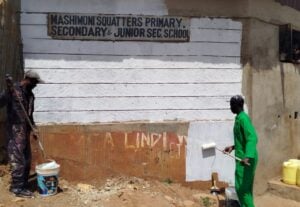
Photo: Hungarian Charity Service of the Order of Malta
This sounds fair enough, but it is still not clear what distinguishes your work from those, who on one hand distribute aid with geopolitical interests in the back of their mind, or those who come with the “kumbaya” attitude, throwing around food aid, or financial grants without any long term strategy.
There is a principle regarding foreign aid stemming from the so-called “post-development” aid philosophy that says that help must be based on the needs and wishes of the recipients. We must move at the pace they can absorb, not the pace we want to impose on them. So, the so-called community development is one of our important principles.
The other is that we have to move with them in the direction in which they envisage their own country going in the future. The culture of encounter is also important for us, which is essentially a Christian idea. If a helper considers himself a committed Christian, he cannot be content with the role of a bystander. We must go to where the wounds are, we must live with these people, we must immerse ourselves with the world of those in need. This has been a priority of the Hungarian Charity Service of the Order of Malta since its foundation.
We do not have local offices, thus we can devote almost one hundred percent of our aid resources to what the program is about. We have no costs for human resources, nor for office maintenance. This is how we create subsidiarity, the development of local organizations. In this, aid delivery based on Christian values is particularly strong, which completely eclipses the so-called “donor interest”.

Photo: Hungarian Charity Service of the Order of Malta
It may sound as demagoguery, but there is a truth basis to the fundamental question: why are you taking aid to far-away countries, rather than helping people in need in Hungary?
This is not demagoguery, it is a justified question. My answer is that we must also hear the cries for help from nations and peoples far away from us. We must have a heart as well as an ear, because their problems are often much more serious than ours here in Hungary or te Global North. If we do not listen to this and only want to focus on the local, we will lose our sense of global responsibility. But this solidarity cannot be excessive either, we cannot give more outwards than we give inwards.
Here we can balance the scales with the help of St Augustine’s ‘ordo amoris’: love itself is to be ordinately loved. At the heart of this is the family, and more broadly the nation. And this expanding circle has a periphery that does not stop at national borders. It is a poor perspective in which this periphery does not appear.
On the other hand, foreign aid is a responsibility that stems from us being a 1,000-year-old country, from Hungary’s independence since the fall of communism, and from our membership of the European Union, which also entails obligations. We receive international development funds which we have to spend the right way, and our organization is active in this. In this work abroad, the Hungarian Charity Service of the Order of Malta can offer guarantees based on its knowledge and experience that the Hungarian state can trust.

Photo: Hungarian Charity Service of the Order of Malta
Is there a relation between foreign aid and the success rate of businessmen and enterprises that later arrive in the target country?
This does exist. Aid is one of the most important tools of the so called “soft power”. In my view, it is the most important one. If aid is given in accordance with the right principles, and not as a tool for re-colonization or as “democracy export”, it is an excellent soft power tool. Uplifting another people, uplifting their dignity, that is what we do.
The Hungarian government often emphasizes that Europe should bring aid to where the problems are, and not the problems to where wealth is. Is there, in your experience, a correlation between bringing aid to countries where most migrants arrive from, and a decrease in those trying to leave?
African countries are the source countries where migration originates. But migration is first of all internal, hence it stays within the continent. First there are internally displaced persons (IDPs) within their own country, then they cross the borders to neighboring countries, and only after that starts the whole phenomenon become an intercontinental migration. If we can provide assistance that stops the spiral of poverty, we can often address the resulting migration spiral as well.
What our politicians are saying, that aid should go to where the trouble is instead of bringing people in trouble to our homes, is a principle that the Hungarian Charity Service of the Order of Malta has been upholding for thirty years. But this question sometimes also arises in a political context, when people argue about whether it is in the interest of the international community to manage migration. This political discourse is about national and ideological interests. We are not involved in this. Instead, we have made the issue of internal refugees a priority for the last five years. We have a program in Syria, but we are also doing it in Kenya. Our goal is to help internally displaced persons return home.
We have started a reintegration and return process for such people in Kenya. We worked with fifty families starting in 2019, which is more than 250 people. It was very successful, with all families moving back to their locations of origin. There they receive mentoring support and all families are living in dignified conditions to date.
There is a frequently voiced opinion that migration is going from A to B, and it cannot be stopped nor cannot be influenced. However, I would argue that it can. On the other hand, it is true that it is not possible to turn back millions of people at once, because there is something called free will, and if someone decides to migrate, I, as a simple facilitator of aid, have no say in that.
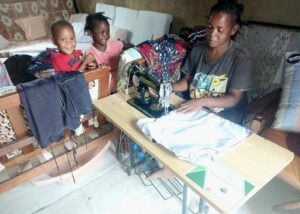
Photo: Hungarian Charity Service of the Order of Malta
You are between a rock and a hard place with your type of work. On the one hand some oppose what you are doing because they want to transform the West into a multicultural, ethnically mixed space through mass migration. But then there are also those who seemingly support it, as it were, hiding behind aid agencies saying, “look, we are sending aid abroad, hence we can close the borders without remorse”.
We are working in a very difficult terrain, but the Hungarian Charity Service of the Order of Malta has the courage to speak out in this regard. I would argue that there is a certain level of migration that can be affected with professional aid initiatives. The phenomenon cannot be reversed in its entirety, one cannot suppress human free will. But there is a type and amount of migration that we can successfully respond to. However, I do not believe that all communities with a migrant background can be successfully integrated into Western majority society. Still, internal migration is a problem that we can often provide a solution to.
There is empirical evidence for this, and I would like to draw your attention to our research in Kenya and Syria. We looked at the living-conditions of the refugees who are beneficiaries of our program, their initial economic circumstances and their motifs for migration. We were able to support our claim that IDPs do not necessarily want to leave their country. There are millions of them who want to stay at home and make a living there. Unfortunately, this is often glossed over in certain migration agendas. This is a very important point in the whole migration issue, which is unfortunately overshadowed by everyday political discourse. We can indeed enter the migration spiral, and it is indeed possible to achieve local impact. In this respect, the poverty spiral, while not entirely reversible, can be mitigated. But this requires a completely new approach of thinking within international organizations’ mindset.
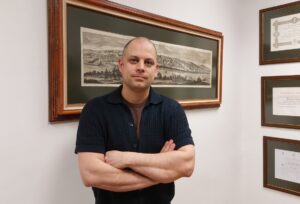
Dániel Solymári. Photo: Hungary Today
You can donate to the charity following THIS LINK
Featured Image: Magyar Máltai Szeretetszolgálat